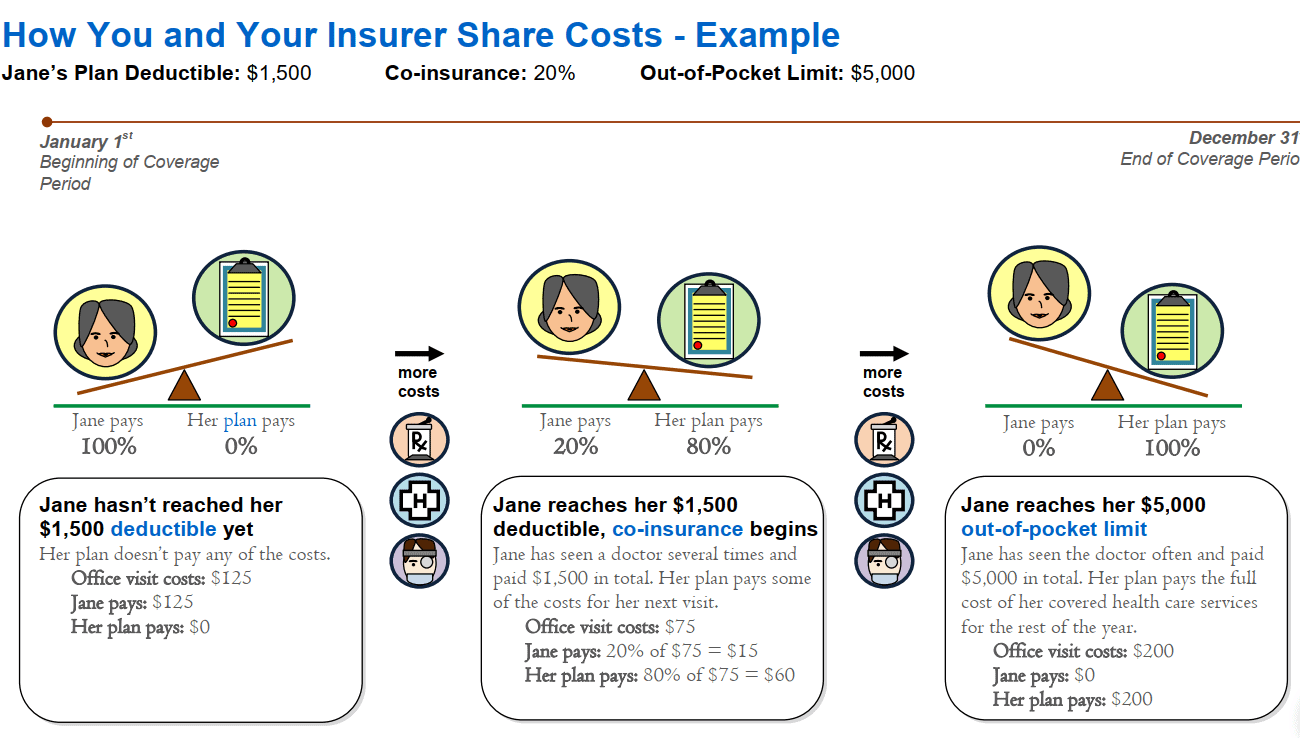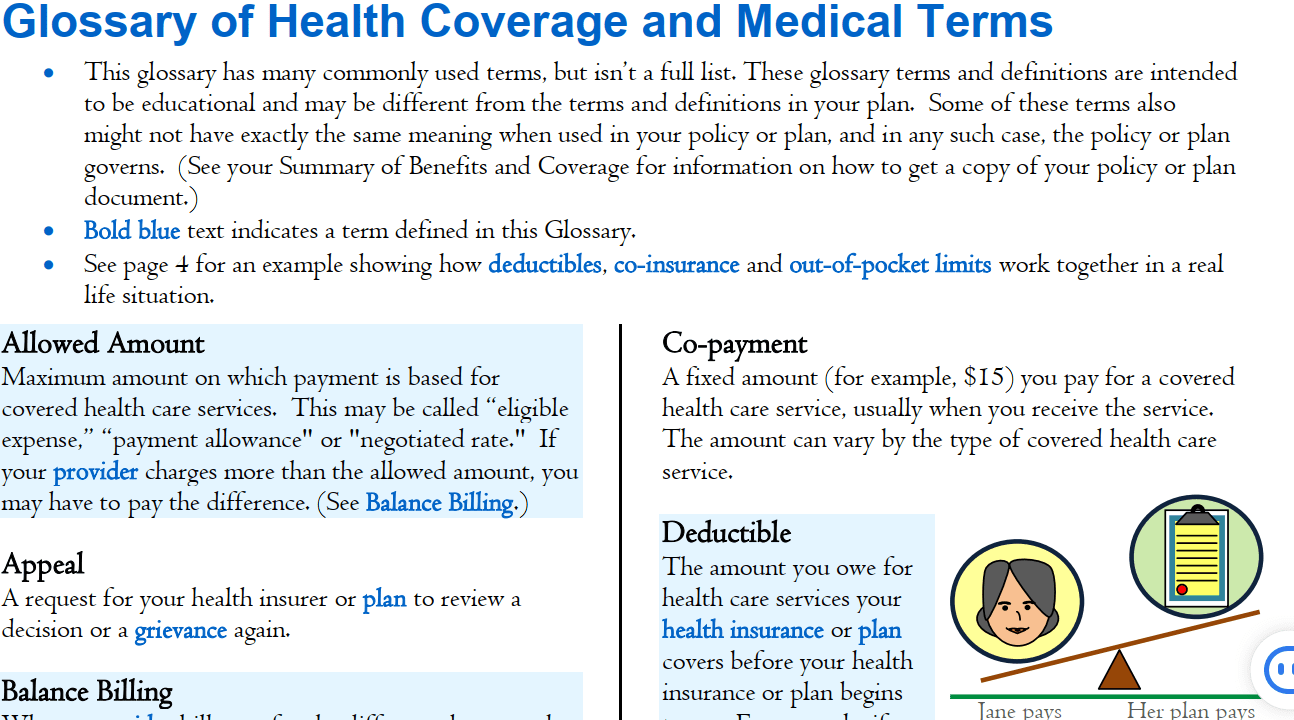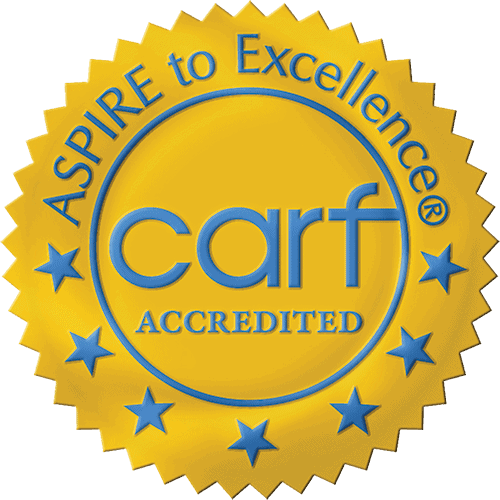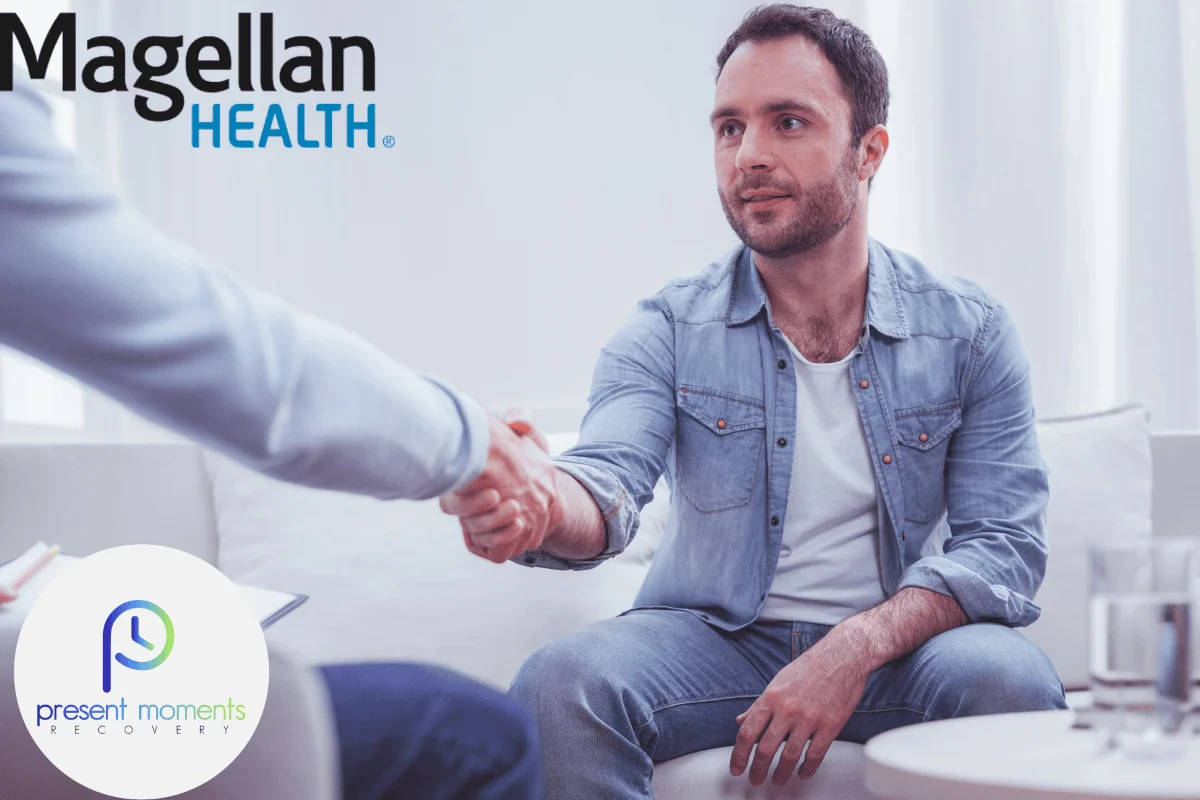Supporting Your Journey to Recovery
Help with Health Insurance

This graphic is great to explain deductibles. Click here for full document.

This graphic contains helpful Insurance Terminology, click here for the full document.
National Resources
The following is a list of additional national resources that are available for individuals and/or family and friends of individuals seeking help with substance use and related disorders:
- Substance Abuse and Mental Health Services Administration (SAMSHA) Treatment Locator SAMHSA provides treatment referral and information service for individuals and families facing mental health problems and/or substance use disorders. Present Moments Recovery Residential and Outpatient centers are listed here.
- Narcotics Anonymous Narcotics Anonymous helps those trying to overcome any type of drug or alcohol dependence using their twelve-step program.
- Nar-Anon Nar-Anon provides support and resources (meetings) for friends and family of people living with substance use disorder/addiction.
- Alcoholics Anonymous Alcoholics Anonymous provides support through their twelve-step program to help individuals overcome a drinking problem.
- Al-Anon Al-Anon provides information and resources (meetings) for friends and family of an alcoholic to help them recover from the effects of their drinking problem.
- SMART Recovery SMART Recovery is the leading self-empowering addiction recovery support group. Our participants learn tools for addiction recovery based on the latest scientific research and participate in a world-wide community which includes free, self-empowering, science-based mutual help groups.
- Smoking Cessation From the National Cancer Institute helps you or someone you care about quit smoking.
- Suicide Prevention Suicide Prevention Lifeline is a 24/7 service that provides free and confidential emotional support to people in suicidal crisis or emotional distress.
What types of treatments are available?
Treatment options can vary depending on the severity of addiction and specific needs of the individual. It is recommended that you seek professional guidance on treatment from your doctor or a treatment provider. A clinical assessment is typically used to determine the recommended treatment option, but for general information, the following are some examples of potential options that may be considered.
Withdrawal Management (aka Detoxification) – Involves a process with three essential components, which include evaluation, stabilization and fostering readiness for and entry into a substance use treatment and recovery program. Detox can be done on a residential or outpatient basis depending on severity.
Interim Care – Involves delivery of daily medication and emergency counseling from a facility in situations where an individual is unable to get directly admitted to a facility due to lack of availability/waitlist.
Outpatient Care – Involves treatment and counseling for individuals that attend appointments at a treatment (like a Doctors office, but nicer!!!) facility, but continue to live at their own home.
Inpatient Care – Involves 24/7 treatment in a hospital or clinic where the individual is admitted and may stay for multiple days or multiple weeks.
Residential Care – Involves an individual living at a facility and receiving treatment that runs over a longer course of time such as a month or a full year.
Sober Living Home/Sober Living Environment/Drug and Alcohol-Free Housing – Involves an individual living temporarily in a home/facility as a means of transitioning from intensive treatment to being ready to live independently.
Telemedicine – Involves treatment and counseling services delivered remotely (over phone or the internet) to an individual, especially when local treatment resources are not readily available.
Medication Assisted Treatment (MAT) – Involves the use of FDA-approved medications, in combination with counseling and behavioral therapies, to provide a "whole-patient" approach to the treatment of substance use disorders. Click here for more information about medications used to treat Opioid Use Disorder or download a brochure here.
Prescribed an Opioid?
Start a Conversation
Questions to ask your doctor.
Is an opioid precription right for me?
How long should I take it?
Could it interact with my other medications?
What should I do with unused opioids?
What if I still feel pain?
What if I experience side effects?
Additional Considerations
- Acetaminophen and ibuprofen and non-drug alternatives may be more effective for pain relief than opioids.
- It may be best to start with the lowest dose and smallest quantity of pain medication. Then follow up with your doctor on how well it's working for you.
- Medications that treat anxiety, sleeping issues or seizures could interact with opioids.
- A drug take-back program near you may be available.
- Call your doctor immediately if you experience excessive sleeping or crave more medication. These may be serious side effects.

What can I do to prevent opioid and substance use disorder?
- Don’t share your medications or use someone else’s.
- Ask your doctor about alternative pain treatment options.
- Stop taking opioids if you don’t need them. Opioids can become addictive in as little as 5 days.
- Turn in your old medications. View this map to find a location with a drug disposal kiosk near you.







